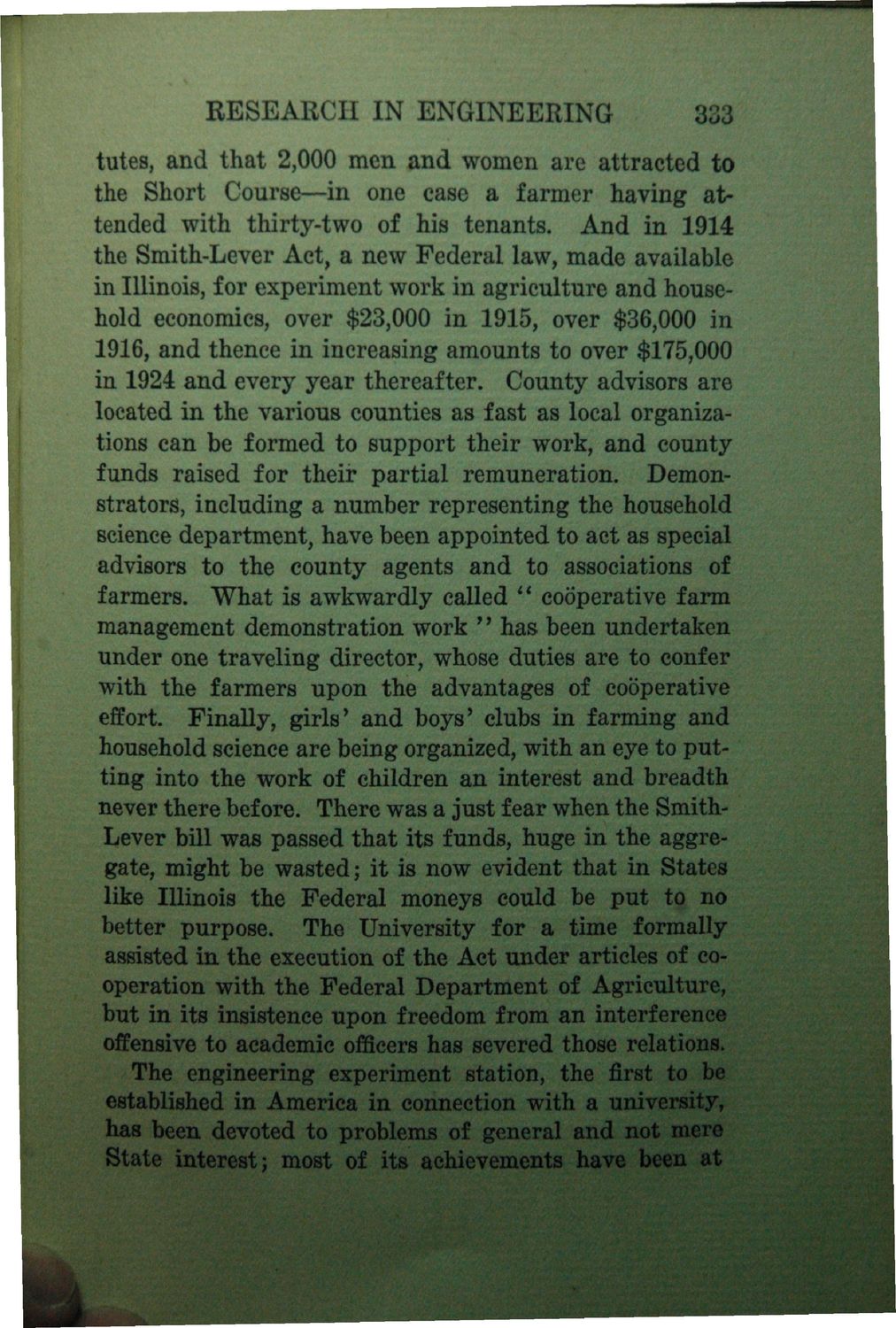| |
| |
Caption: Book - History of the University (Nevins)
This is a reduced-resolution page image for fast online browsing.

EXTRACTED TEXT FROM PAGE:
BESEARCH IN ENGINEERING 333 tutes, and that 2,000 men and women are attracted to the Short Course—in one case a farmer having attended with thirty-two of his tenants. And in 1914 the Smith-Lever Act, a new Federal law, made available in Illinois, for experiment work in agriculture and household economics, over $23,000 in 1915, over $36,000 in 1916, and thence in increasing amounts to over $175,000 in 1924 and every year thereafter. County advisors are located in the various counties as fast as local organizations can be formed to support their work, and county funds raised for their partial remuneration. Demonstrators, including a number representing the household science department, have been appointed to act as special advisors to the county agents and to associations of farmers. What is awkwardly called " cooperative farm management demonstration work " has been undertaken under one traveling director, whose duties are to confer with the farmers upon the advantages of cooperative effort. Finally, girls' and boys' clubs in farming and household science are being organized, with an eye to putting into the work of children an interest and breadth never there before. There was a just fear when the SmithLever bill was passed that its funds, huge in the aggregate, might be wasted; it is now evident that in States like Illinois the Federal moneys could be put t§ no better purpose. The University for a time formally assisted in the execution of the Act under articles of cooperation with the Federal Department of Agriculture, but in its insistence upon freedom from an interference offensive to academic officers has severed those relations. The engineering experiment station, the first to be established in America in connection with a university, has been devoted to problems of general and not mere State interest; most of its achievements have been at
| |